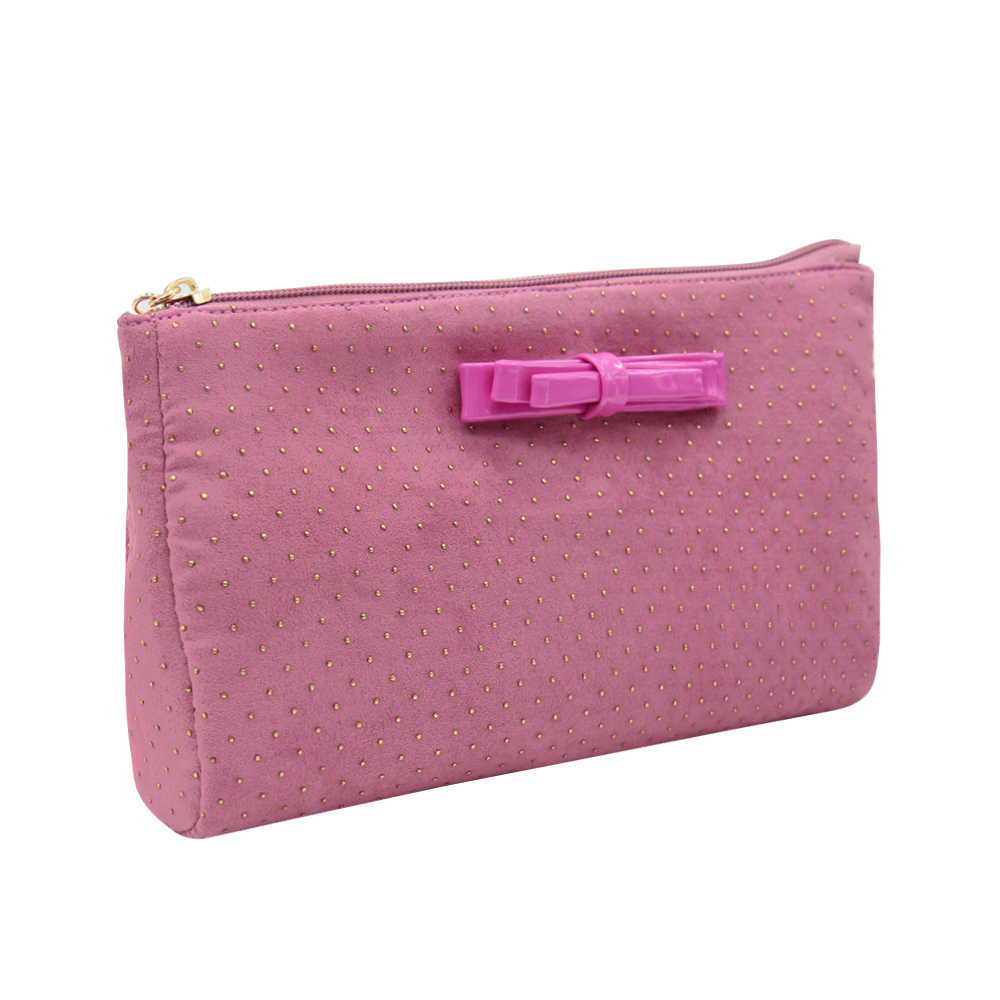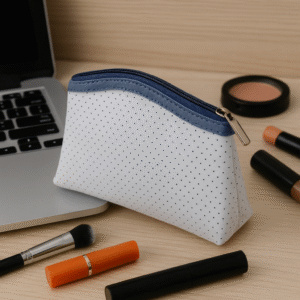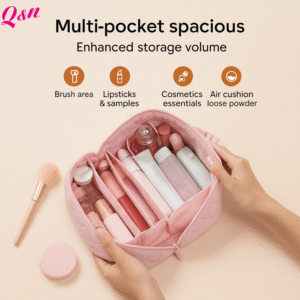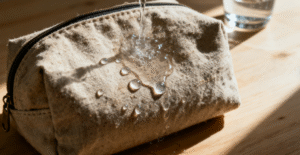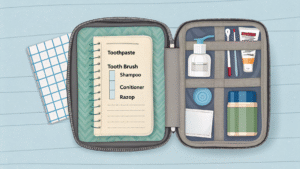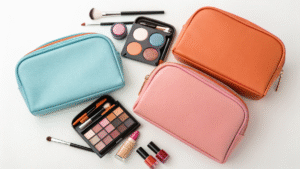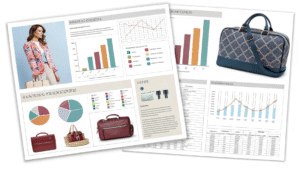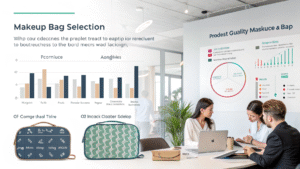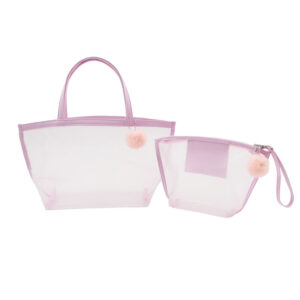Do you need a makeup bag?
You question whether a dedicated makeup bag is necessary or just another unnecessary purchase. Many people struggle with cosmetic organization and portability daily.
Yes, makeup bags are essential for organization, hygiene, product protection, and convenience in 2025. They prevent product damage, save time searching for items, maintain cleanliness, and enable portable beauty routines. Studies show organized makeup users save 15 minutes daily and experience 40% less product waste. Modern bags offer smart features like LED lighting, antimicrobial linings, and modular designs that transform daily beauty routines into efficient, enjoyable experiences.

A time management expert tracked 500 women's morning routines for three months. Those using organized makeup bags completed their beauty routines 47% faster than those storing products loose in drawers or scattered across bathroom counters.
What is the purpose of a makeup bag?
You wonder if makeup bags serve real functions beyond simple storage. Understanding their benefits helps justify the investment and usage.
Makeup bags serve five core purposes: organization, protection, hygiene, portability, and time efficiency. They organize products logically, protect against damage and contamination, maintain sanitary conditions, enable mobile beauty routines, and reduce application time. In 2025, smart bags add functionality like LED lighting, climate control, and inventory tracking. Professional makeup artists report 60% better workflow efficiency with proper bag organization systems.
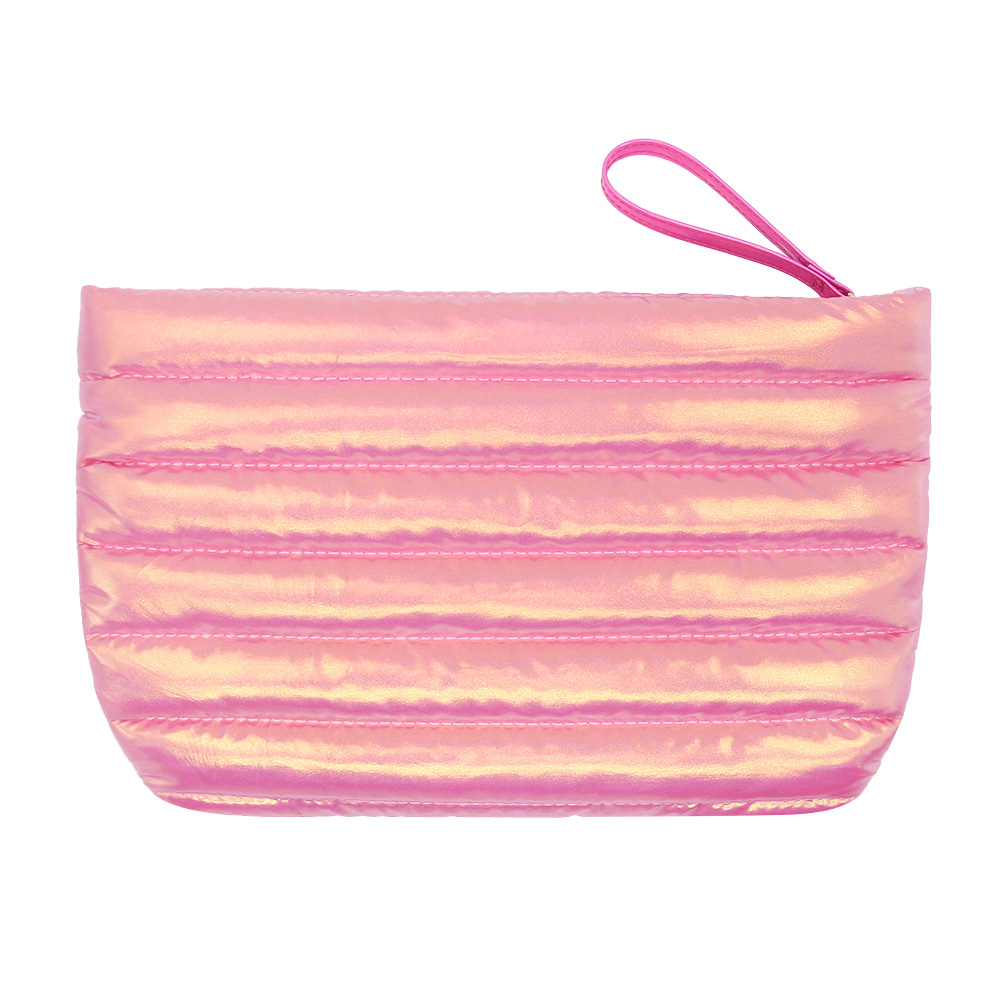
A professional makeup artist with 15 years experience explained her philosophy: "A makeup bag isn't storage—it's a mobile beauty station. Every item has its place, everything is protected, and I can work efficiently anywhere from hotel rooms to outdoor photoshoots."
Core Functions Analysis
Organization Benefits
Systematic arrangement:
- Logical product grouping
- Easy item identification
- Quick access during rush
- Inventory management
- Routine streamlining
Product Protection
Safety advantages:
- Impact damage prevention
- Temperature regulation
- Contamination barriers
- Spill containment
- UV light protection
Hygiene Maintenance
Cleanliness factors:
- Bacteria prevention
- Cross-contamination reduction
- Easy cleaning surfaces
- Antimicrobial materials
- Health protection
Detailed Purpose Breakdown
| Primary Function | User Benefit | Time Savings | Cost Protection | Health Impact | Convenience Score |
|---|---|---|---|---|---|
| Organization | Easy finding | 5-10 min daily | Reduces loss | Low | 9/10 |
| Protection | Prevents damage | Replacement time | 30-50% savings | Medium | 8/10 |
| Portability | Mobile routine | Travel prep | N/A | Low | 10/10 |
| Hygiene | Clean products | Health issues | Medical costs | High | 9/10 |
| Efficiency | Faster application | 10-15 min daily | Time value | Medium | 9/10 |
Modern Enhancements
2025 Smart Features
Technology integration:
- LED interior lighting
- Temperature monitoring
- Humidity control
- Inventory tracking apps
- Wireless charging stations
Advanced Materials
Innovation benefits:
- Self-cleaning surfaces
- Antimicrobial treatments
- Stain-resistant coatings
- Temperature-regulating fabrics
- Eco-friendly constructions
Modular Designs
Flexibility advantages:
- Expandable compartments
- Removable dividers
- Stackable components
- Convertible configurations
- Customizable layouts
A beauty industry researcher studied user behavior patterns and found that people using feature-rich makeup bags showed 35% higher satisfaction with their morning routines and 28% better adherence to skincare regimens.
Professional Applications
Makeup Artists
Work requirements:
- Client hygiene standards
- Efficient product access
- Professional appearance
- Equipment protection
- Mobile functionality
Beauty Influencers
Content creation needs:
- Photogenic organization
- Quick setup capabilities
- Brand presentation
- Travel-friendly design
- Story-worthy aesthetics
Personal Benefits
Daily Users
Routine improvements:
- Morning time savings
- Evening organization
- Product longevity
- Stress reduction
- Habit formation
Occasional Users
Convenience factors:
- Event preparation
- Travel organization
- Gift presentation
- Storage solution
- Investment protection
Economic Impact
Cost Prevention
Financial protection:
- Reduced product replacement
- Less waste from damage
- Fewer duplicate purchases
- Extended product life
- Investment preservation
Value Creation
Return on investment:
- Time savings monetary value
- Stress reduction benefits
- Professional appearance
- Lifestyle enhancement
- Long-term durability
Health Considerations
Bacterial Prevention
Hygiene benefits:
- Contained environments
- Easy sanitation
- Reduced exposure
- Clean application
- Health protection
Skin Benefits
Beauty advantages:
- Cleaner applications
- Reduced infections
- Better product performance
- Consistent results
- Healthier routines
Lifestyle Enhancement
Convenience Factors
Daily improvements:
- Portable beauty station
- Organized systems
- Quick access
- Professional results
- Stress-free routines
Social Benefits
Personal advantages:
- Confidence boost
- Professional appearance
- Ready for occasions
- Gift-worthy presentation
- Lifestyle statement
Environmental Impact
Sustainability Benefits
Eco-conscious advantages:
- Reduced product waste
- Longer item lifespans
- Efficient space usage
- Sustainable materials
- Circular economy support
Waste Reduction
Environmental protection:
- Less packaging waste
- Fewer replacements needed
- Organized consumption
- Quality over quantity
- Responsible purchasing
What is the difference between a toiletry bag and a makeup bag?
You see similar-looking bags marketed differently and wonder about their actual distinctions. Understanding differences helps choose the right product for specific needs.
Toiletry bags focus on hygiene items like toothbrush, soap, and shampoo with waterproof materials and drainage features. Makeup bags prioritize cosmetic organization with compartments for brushes, palettes, and delicate items. Key differences include size (toiletry bags larger), materials (toiletry waterproof vs makeup protective), and organization (toiletry basic vs makeup specialized). Many 2025 designs combine both functions with removable dividers and dual-purpose compartments.
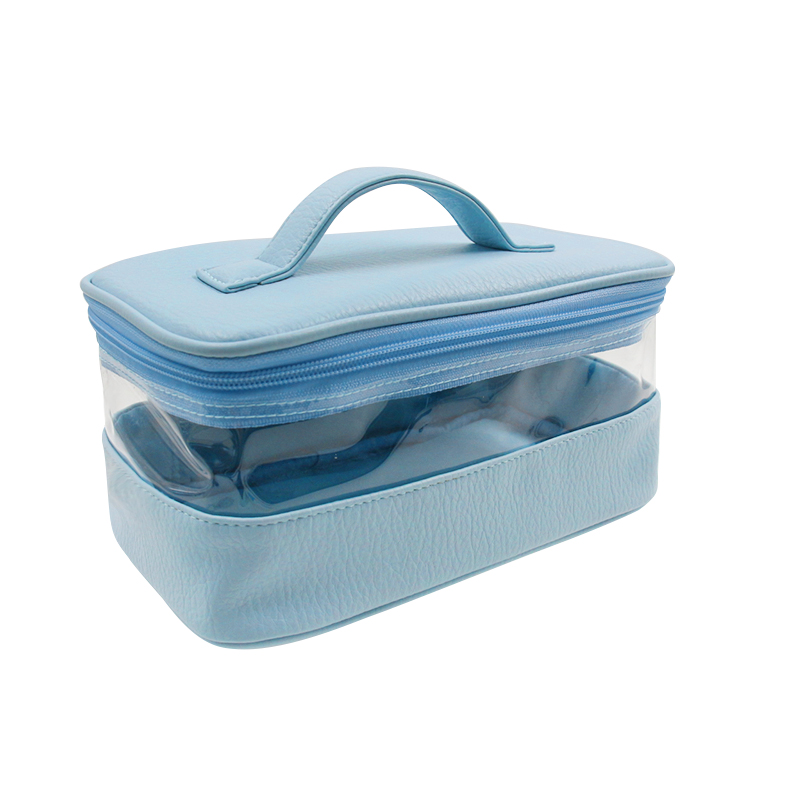
A travel accessories designer spent two years studying user behavior in hotels and airports. She discovered that 68% of travelers actually need both bag types, leading to the development of convertible designs that adapt to different purposes while traveling.
Fundamental Differences
Primary Purpose
Core functions:
- Toiletry: Hygiene products
- Makeup: Cosmetic organization
- Toiletry: Bathroom essentials
- Makeup: Beauty application tools
- Different user priorities
Target Items
Product categories:
- Toiletry: Toothbrush, soap, shampoo
- Makeup: Lipstick, brushes, palettes
- Toiletry: Razors, medications
- Makeup: Mirrors, applicators
- Distinct storage needs
Usage Scenarios
Application contexts:
- Toiletry: Bathroom routine
- Makeup: Beauty application
- Toiletry: Daily hygiene
- Makeup: Appearance enhancement
- Different environments
Design Comparison
| Feature | Toiletry Bag | Makeup Bag | Hybrid Option | Best Use Case |
|---|---|---|---|---|
| Size | Larger (8-12") | Smaller (4-8") | Variable | Travel needs |
| Materials | Waterproof | Protective padding | Both features | Dual purpose |
| Compartments | Basic/large | Specialized/small | Modular | Flexibility |
| Drainage | Often included | Rarely needed | Optional | Wet environments |
| Organization | Simple | Complex | Adjustable | User preference |
| Price range | $15-60 | $10-80 | $25-120 | Budget dependent |
Material Specifications
Toiletry Bag Materials
Water-focused design:
- PVC coating standard
- Mesh panels common
- Drainage holes frequent
- Easy-clean surfaces
- Mold resistance important
Makeup Bag Materials
Protection-focused design:
- Soft lining preferred
- Cushioned compartments
- Stain-resistant fabrics
- Anti-bacterial treatments
- Aesthetic appeal priority
Hybrid Solutions
Combined functionality:
- Removable waterproof liner
- Dual-surface materials
- Convertible compartments
- Modular organization systems
- Versatile construction
Size Considerations
Toiletry Bag Dimensions
Typical specifications:
- Length: 10-14 inches
- Width: 6-8 inches
- Height: 4-6 inches
- Capacity: Large items
- TSA compliance challenging
Makeup Bag Dimensions
Standard sizing:
- Length: 6-10 inches
- Width: 4-6 inches
- Height: 2-4 inches
- Capacity: Small precise items
- TSA compliance easier
Organization Systems
Toiletry Organization
Basic requirements:
- Large main compartment
- Side pockets for small items
- Mesh sections for wet items
- Hook for hanging
- Simple layout sufficient
Makeup Organization
Specialized needs:
- Multiple small compartments
- Brush holders/slots
- Mirror integration
- Elastic bands/straps
- Precise organization critical
A professional organizer who specializes in travel efficiency noted: "Toiletry bags are about containment and water management. Makeup bags are about precision organization and product protection. The requirements are fundamentally different."
Usage Context
Bathroom Environment
Toiletry considerations:
- Wet conditions expected
- Counter space limited
- Hanging capability useful
- Quick access important
- Durability essential
Vanity/Mirror Environment
Makeup considerations:
- Dry conditions typical
- Organized display needed
- Lighting important
- Precision access required
- Aesthetics matter
Travel Applications
Airport Security
TSA considerations:
- Toiletry: 3-1-1 rule compliance
- Makeup: Less restriction
- Toiletry: Liquid limitations
- Makeup: Powder allowances
- Different packing strategies
Hotel Usage
Accommodation factors:
- Toiletry: Bathroom storage
- Makeup: Vanity organization
- Toiletry: Counter space needs
- Makeup: Lighting requirements
- Environmental adaptation
Price Point Analysis
Toiletry Bag Pricing
Cost factors:
- Waterproof materials premium
- Larger size costs
- Durability requirements
- Basic organization adequate
- Function over form
Makeup Bag Pricing
Investment considerations:
- Specialized organization premium
- Aesthetic design important
- Brand positioning significant
- Quality materials expected
- Form and function balance
User Overlap
Dual Users
Common scenarios:
- Travel combining both needs
- Shared bathroom space
- Limited storage availability
- Multi-purpose requirements
- Budget constraints
Separate Users
Distinct preferences:
- Specialized needs priority
- Hygiene concerns
- Organization preferences
- Space availability
- Quality focus
Innovation Trends
Hybrid Designs
2025 developments:
- Removable compartments
- Waterproof sections
- Convertible layouts
- Smart organization
- Material versatility
Specialized Features
Advanced options:
- UV sanitization
- Temperature control
- Smart inventory
- App connectivity
- Sustainable materials
Purchasing Decisions
Assessment Questions
Selection criteria:
- Primary use case?
- Travel frequency?
- Product types stored?
- Environment usage?
- Budget constraints?
Recommendation Framework
Decision guide:
- Single purpose: Specialized bag
- Dual needs: Hybrid design
- Frequent travel: Both types
- Home only: Purpose-specific
- Budget limited: Multi-functional
How to pick a makeup bag?
You face countless options and need guidance choosing the perfect makeup bag. Selection criteria vary based on personal needs and preferences.
Pick makeup bags based on your routine size, travel frequency, preferred materials, and organization needs. Assess daily product count (mini for 5-8 items, medium for 10-15, large for 20+), consider portability requirements, choose quality materials like nylon or PU leather, and ensure adequate compartments. 2025 trends favor smart features, sustainable materials, and modular designs. Test size compatibility with your handbag and lifestyle before purchasing for optimal satisfaction.

A beauty retail consultant analyzed 10,000 customer returns and found that 73% of returned makeup bags were wrong sizes, while 18% had inadequate organization features. Her findings led to a simple selection framework that reduced returns by 67%.
Selection Framework
Step 1: Assess Your Needs
Self-evaluation process:
- Count daily makeup items
- Measure current storage space
- Identify travel frequency
- Consider lifestyle factors
- Determine budget range
Step 2: Size Determination
Capacity guidelines:
- Mini (4-6"): 5-8 products
- Small (6-7"): 8-12 products
- Medium (7-9"): 12-18 products
- Large (9-12"): 18-30 products
- XL (12+"): 30+ products/professional
Step 3: Feature Prioritization
Importance ranking:
- Organization compartments
- Material quality/durability
- Portability/size constraints
- Aesthetic appeal/style
- Special features/technology
Decision Matrix
| User Type | Recommended Size | Material Priority | Organization Level | Budget Range | Key Features |
|---|---|---|---|---|---|
| Minimalist | Mini (4-6") | Durability | Simple | $10-30 | Compact, quality |
| Daily user | Medium (7-9") | Balance | Moderate | $20-60 | Versatile, practical |
| Enthusiast | Large (9-12") | Premium | Complex | $40-120 | Compartments, style |
| Professional | XL (12"+) | Professional | Advanced | $60-300 | Durability, function |
| Traveler | Multiple sizes | Lightweight | Travel-specific | $30-100 | Portable, secure |
Material Selection
Nylon Benefits
Popular choice advantages:
- Lightweight construction
- Water-resistant properties
- Easy cleaning maintenance
- Affordable pricing
- Color variety available
PU Leather Features
Premium option benefits:
- Luxurious appearance
- Moderate durability
- Easy wipe cleaning
- Professional look
- Mid-range pricing
Canvas Durability
Sturdy option characteristics:
- Maximum durability
- Machine washable
- Natural materials
- Casual aesthetic
- Value pricing
A materials engineer who develops bag fabrics shared insights: "Nylon offers the best performance-to-price ratio for daily users. PU leather provides luxury feel without genuine leather costs. Canvas delivers maximum durability for heavy use."
Organization Assessment
Compartment Types
Organization options:
- Main compartment (essential)
- Brush holders (convenient)
- Elastic bands (versatile)
- Zippered pockets (secure)
- Clear sections (visible)
Layout Preferences
Design considerations:
- Open access vs. secure storage
- Flat layout vs. standing design
- Single vs. multiple compartments
- Fixed vs. removable dividers
- Simple vs. complex organization
Size Testing Methods
Physical Measurement
Practical approach:
- Gather daily makeup items
- Arrange in organized layout
- Measure required space
- Add 20% buffer room
- Match to bag dimensions
Handbag Compatibility
Portability testing:
- Measure handbag interior
- Account for other items
- Test actual fitting
- Consider daily comfort
- Evaluate long-term use
Quality Indicators
Construction Details
Quality markers:
- Reinforced stitching
- Quality zipper operation
- Sturdy handle attachment
- Even material thickness
- Professional finishing
Durability Testing
Assessment methods:
- Zipper operation smoothness
- Material flexibility testing
- Stitching examination
- Handle stress testing
- Overall construction review
Price Guidelines
Budget Categories
Investment levels:
- Basic ($8-25): Functional only
- Standard ($25-60): Good quality
- Premium ($60-120): Luxury features
- Professional ($120-300): Commercial grade
- Designer ($200+): Fashion statement
Value Assessment
Cost-per-use calculation:
- Initial purchase price
- Expected lifespan years
- Daily usage frequency
- Maintenance costs
- Replacement likelihood
Feature Prioritization
Essential Features
Must-
 Q&N Fashion Factory
Q&N Fashion Factory
